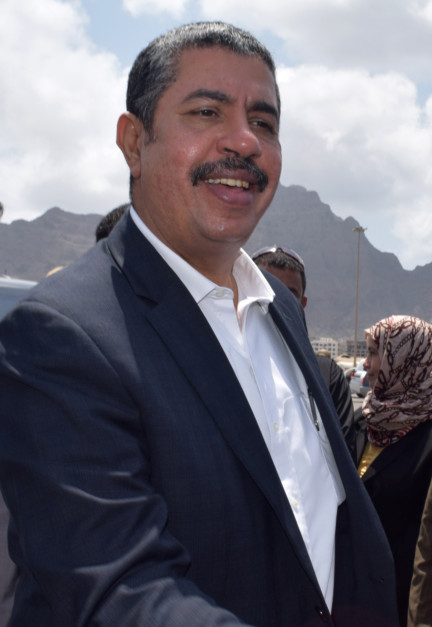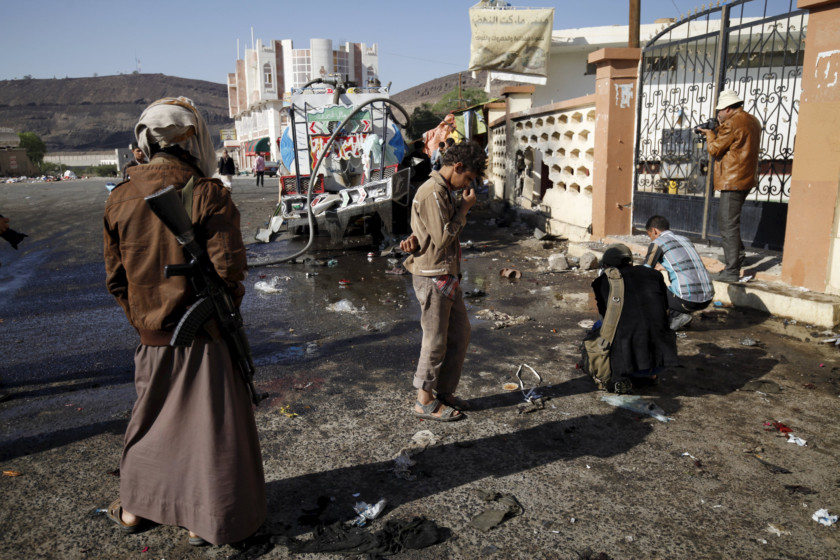
Aden: Yemen’s government has said it will stay in the country’s temporary capital Aden despite a deadly bombing on its headquarters, which lightly wounded several ministers.
After a meeting late on Tuesday, the cabinet acknowledged that the attacks earlier in the day had been car bombings, as claimed by Daesh, and not rocket attacks.
Two bombs targeted the government’s temporary headquarters in Aden’s Al Qasr Hotel, lightly wounding several ministers although Prime Minister Khalid Bahah escaped unharmed. Two guards were killed.
Two more bombs hit military installations used by Saudi-led coalition troops, who have been battling Al Houthi militiamen since March in support of the Yemeni government.
Daesh claimed the attacks and published the names and photographs of the four suicide bombers it said had carried them out.
It was the first time that the group had claimed attacks on government and coalition targets. Previous attacks had targeted Shiite mosques frequented by Al Houthis.
A new suicide bombing outside a mosque in the militant-held capital Sana’a killed seven people on Tuesday evening. There was no immediate claim of responsibility.
The coalition said that one Saudi and four Emirati soldiers were among the dead in Aden.
Bahah and his ministers only returned to the southern port city on September 16 after six months of exile in neighbouring Saudi Arabia.
The Yemeni government “insists on continuing its national and historical role during this exceptional phase from the temporary capital Aden until all parts of the country are liberated,” said a statement issued after Tuesday’s cabinet meeting.
It accused the militants and their allies, who still control Sana’a and much of central and northern Yemen, of deliberately creating the power vacuum that has been exploited by the terrorists of Daesh and Al Qaida.
It said it held them “completely responsible for encouraging extremist and terrorist” groups, and pledged to save the country from the “chaos desired by the enemies and the regional powers they work for,” an allusion to Iran.













